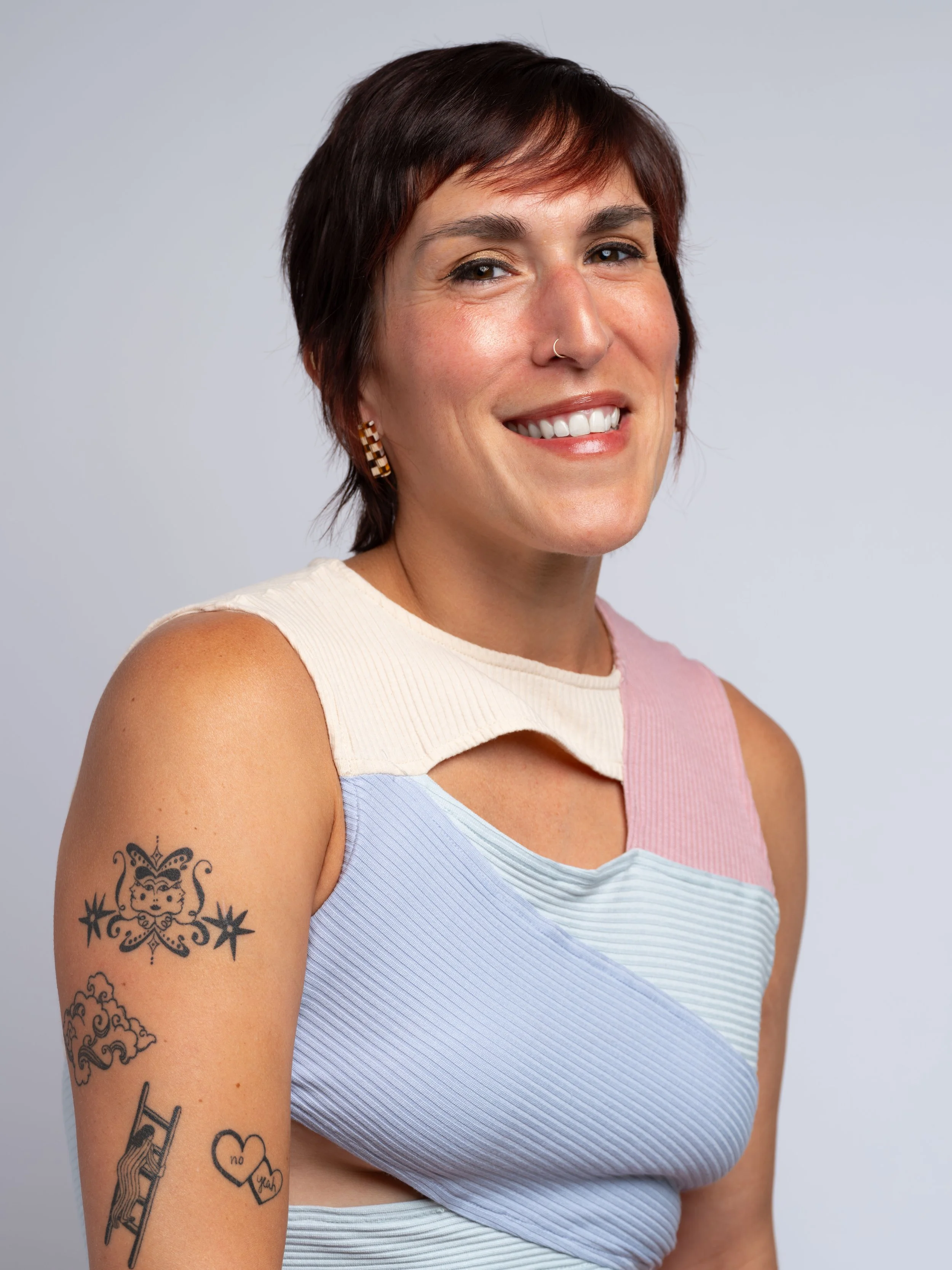A Seat at the Writer’s Table
Interview with Lindsey Villarreal by Carmen Vidal
As TV shows and feature films continue to invest in more diverse stories, the need for diverse talent grows, not only in front of the camera but also for everyone who works behind the scenes. This makes it possible for many in underrepresented communities to have the chance at career paths that were once unavailable to them. However, this brings a new set of challenges for many, especially for those who are breaking ground like Lindsey Villarreal, a TV and Feature writer/producer who is representing San Antonio in the writing rooms of Hollywood.
As a creative teenager, Lindsey dabbled in TV journalism, wrote short stories, and even made her short films. Despite her unwavering passion for storytelling, she never thought she could turn her love for writing into a career. But with determination and hard work, she built a successful career and has now worked for shows like; Resident Evil, The Purge, and one of my absolute favorite shows, Vida. We sat down to chat about how her relationship with money impacted her career, to help others see that it is possible to not come from money and still make it in Hollywood.
“I grew up with a scarcity mentality,” Lindsey tells me as we dive into the conversation. “My parents lived from paycheck to paycheck, so, when it came to choosing a career path, doing the thing that didn’t make money didn’t make sense.” This is a sentiment that a lot of children of immigrants can relate to when choosing a career, “It’s that first-generation mentality, ‘you can’t rest!’, you have to be busy, because your parents were always busy trying to make money to put food on the table, so you feel bad when you are removed from that.”
Guilt was not her only obstacle. As Lindsey continued to advance in her career, the economic disadvantages she faced became more palpable. “The system already cheats us from being our most creative selves,” Lindsey tells me as she recalls how hard it was to juggle side projects and long work hours to “scrape by.” This is something a lot of creative professionals struggle with too, “being creative requires a lot of time, not only for creating, but to recharge, find inspiration, collaborate, etc. Like, how are you supposed to do all that when you need to be at a 9 to 5? You need time to be creative and to have time, you need money.” It’s not ‘till now that Lindsey is more established in her career, and that she has some financial stability, that she can unabashedly take time to just be creative.
Our conversation led me to recall my own experiences with money. Like her, I also didn’t have a clue about financial literacy when I embarked on my career, and many of my decisions were made unaware of what I was supposed to do with money, or how to build wealth. Many of us simply don’t have the tools, or even the space to have open discussions about money that will benefit us. We don’t have it in our homes and it’s certainly not provided to us when we step into institutions that are not designed for us to win.
As we discuss this, Lindsey tells me about her time at USC, “I don’t know how much you know about USC, but they call it ‘the university for spoiled children.’ Most of these kids don’t need to worry about money. I had no one to talk about things like taking on too many loans or credit card debt.” Lacking this knowledge can lead to poor financial decisions that will affect our financial stability in years to come. “We are sold this capitalist dream to go to school, get a credit card to pay for what we need while we are there, and it’s ok because we will land the job of our dreams and it will All. Be. Worth it.” Believing this lie cheated Lindsey into a debt that she wasn’t able to get out of until she was well into her 30s. “Nobody has these conversations, I remember talking at this panel at USC a couple of months ago, and I talked about money and these kids came to me after and thanked me for talking about the things that nobody talks about, and who do you think they were? A Black and a Latina student.”
“We need to remove that scarcity mentality, there is enough room for all, and if we want the whole communal table for ourselves we have to come in as a big group and take it.”
Now that she is in an early mid-point in her career, Lindsey knows how important money conversations are, and she uses her voice to speak about fair compensation. “The gatekeepers are betting that you won’t be able to quantify your worth as a creative. Like, it’s someone’s job to cut cost at corporations,'' she tells me as she recalls a situation when they were trying to renegotiate the writer’s contracts, “In a kind of villainous way they wanted for a group of us to sign new contracts without our bosses present, I refused to sign, our bosses were called in and agreed that we were being screwed over, and the situation was rectified.” This audacity to speak up comes from knowing your value, “When you are a young Latino just starting your career and you land these opportunities, you feel so happy to be in and they will try to get you on that! They will say ‘You should be grateful, you are so lucky to be here’…well yeah, lucky enough to be compensated fairly!”
And that is something that young creatives need to understand, “I was talking to a friend about getting jobs after the strike, and honestly, two fucking pochas, one from the bay and one from Texas? Pfft! They should be so lucky to have us!” And Lindsey is right, what we bring to the table; our experiences, our perspectives, our stories are of value to these corporations, and we need to start charging accordingly. “I think more artists should start thinking of themselves as commercial, being commercial is not bad, it just means that people want what you’re selling, and what you are selling is unique and valuable.”
Young creative professionals of color need to break away from these narratives that what we have isn’t special, or that the opportunities are only for a few of us. As we work to shift these mindsets we can learn from each other and build strength in numbers. “I think you have to have the confidence that you will find the people who want to work with you and who want to see you grow, and you have to work to build that community.”
Community building truly is our biggest weapon in our fight against these oppressive economic systems. We see it at the strikes, we see it in our professional journeys and everyday life. “Part of the corporate old white money game is to pit us against each other. That’s why you find all these competitive Latinos who don’t want others to raise the ‘whole crabs in the bucket’ mentality. Like, corporations want us to fight each other for one job,” Lindsey tells me as we close out our conversation, “Like, NO! We have to see it as the more we move up the more we can put all of us in positions of power. We need to remove that scarcity mentality, there is enough room for all, and if we want the whole communal table for ourselves we have to come in as a big group and take it. We can’t be divided in our community.”
It is with this message that I want to leave you with; whether we are having conversations with each other about money, helping others advance their careers, or spending our hard-earned money in our communities, we have the power to shift our financial well-being as individuals and as a community


